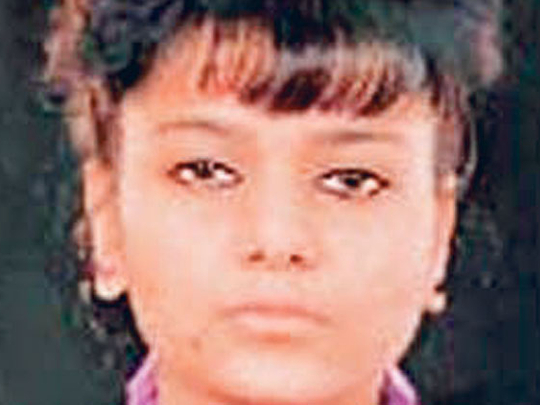
New Delhi : Each year, India records innumerable cases of homicide, political upheavals and deaths caused by natural disasters or calamities. The media reports everything, including sensational cases of murder or suicide. Recently, it has pursued such cases with a dogged ambition to get justice for victims, leading to the now popular phrase ‘trial by media'.
Related Article: Trial by media
The last few years have proven to be quite extraordinary what with the impact of television and newspaper coverage forcing some lawsuits to be re-opened. The cases of Nitish Katara, Jessica Lall, Priyadarshini Mattoo, Aarushi Talwar and Ruchika Girhotra are a few examples.
Whether the media plays a constructive role or not is a moot point. Should it instead respect an individual's right to privacy and a fair trial? Does social activism mean supporting the media and helping it unearth and pursue the cases?
Whatever the answer, one thing holds true. If not for media's intervention and constant hammering for justice, the accused in many of the aforementioned cases would have gone unpunished or with a minimum sentence.
Media's attention has been particularly intense when the crime was sensational or horrific and involved high-profile personalities accused of having ‘connections' in the ‘right places'. It lead the defence lawyers to blame newshounds of scrutinising and reporting every move of the accused and creating an atmosphere of public hysteria.
Recently, for instance, Manu Sharma, the accused in the murder of model Jessica Lall, was out on parole for more than a month on the plea that ‘he needed to look after his ailing mother.' During this period he was allegedly seen at a bar in Delhi while his mother was caught on camera attending a press briefing in Chandigarh.
Brought to light
By publishing their photographs, the media created a ruckus and Sharma was soon forced to surrender and return to Tihar Jail, two weeks before the expiry date of his parole.
Sharma was earlier acquitted by the lower court for lack of evidence. The retraction of statements by key witnesses further weakened the proceedings. But allegations of a cover-up to protect Jessica's alleged killers sparked public outrage, forcing a fresh investigation of the case.
The High Court conducted proceedings on a fast track with daily hearings and Sharma was soon found guilty of murder and sentenced to life imprisonment. The case is now under litigation in the Supreme Court.
Sharma's conviction followed Nitish Katara's case — a senior executive who went missing from a marriage party in Uttar Pradesh in February 2002.
A number of witnesses, including friends of both Nitish and his friend Bharti Yadav had repudiated their initial testimony. However, based on intense media scrutiny, public support to the family and strong evidence, the fast track court awarded life imprisonment sentence to Bharti's brother Vikas Yadav and their cousin Vishal Yadav, both accused of murdering Katara.
The widespread celebration that followed — a first for a conviction reported by the media — was evidence of the fact that the public voice could move the machinery of justice. It not only enabled people to have faith in the judiciary, but proved that the most powerful were not above law.
In the case of Priyadarshini Mattoo — a law student at the Law Centre of Delhi University who was allegedly murdered by her senior Santosh Singh — the Delhi Police had allegedly sabotaged all clues pertaining to the crime scene and botched up relevant evidence at the behest of Singh's father, then Joint Commissioner of Police. But justice prevailed and the High Court ordered Singh to be ‘hanged till death'.
In the case of Ruchika Girhotra — an emerging tennis player who committed suicide after being allegedly molested and tormented by former Director-General of Police, Haryana, S. P. S. Rathore — it seemed as if the accused took advantage of his powerful position to torture Ruchika's father and brother.
Recently, the trial court handed Rathore a jail term of six months and a 1,000 rupees fine.
Ongoing battle
The verdict, provided after 19 years, raised a huge debate. The case went for a re-trial and the battle for justice continues for Ruchika and her family.
Representing Rathore's case, his lawyer and wife Abha alleged in court that fresh cases had been registered against her husband due to media pressure. Ram Jethmalani, who is fighting Manu Sharma's case, has time and again issued complaints against the media for crossing limits.
But both Katara's mother Neelam and Jessica's sister Sabrina have maintained that, "It's amazing to see such solidarity. The mass support of people whom we have neither known nor met is incredible." Likewise, Priyardarshini's father Chaman Lal Mattoo remarked, "Neighbours, strangers and the media — all stood by us and offered immense support."
While the media continues to pursue Aarushi's case, the classic question of whodunit has provided enough fodder for speculation — media reports have even forced the matter to be discussed in parliament.
While the police and those accused remind the media of its limits, the media's continued obsession to report sensational cases has moved the administrative set-up and forced a change in mindset.
Does India's justice system need a complete overhaul? Is social policing by the media a worrying development in Indian society?












